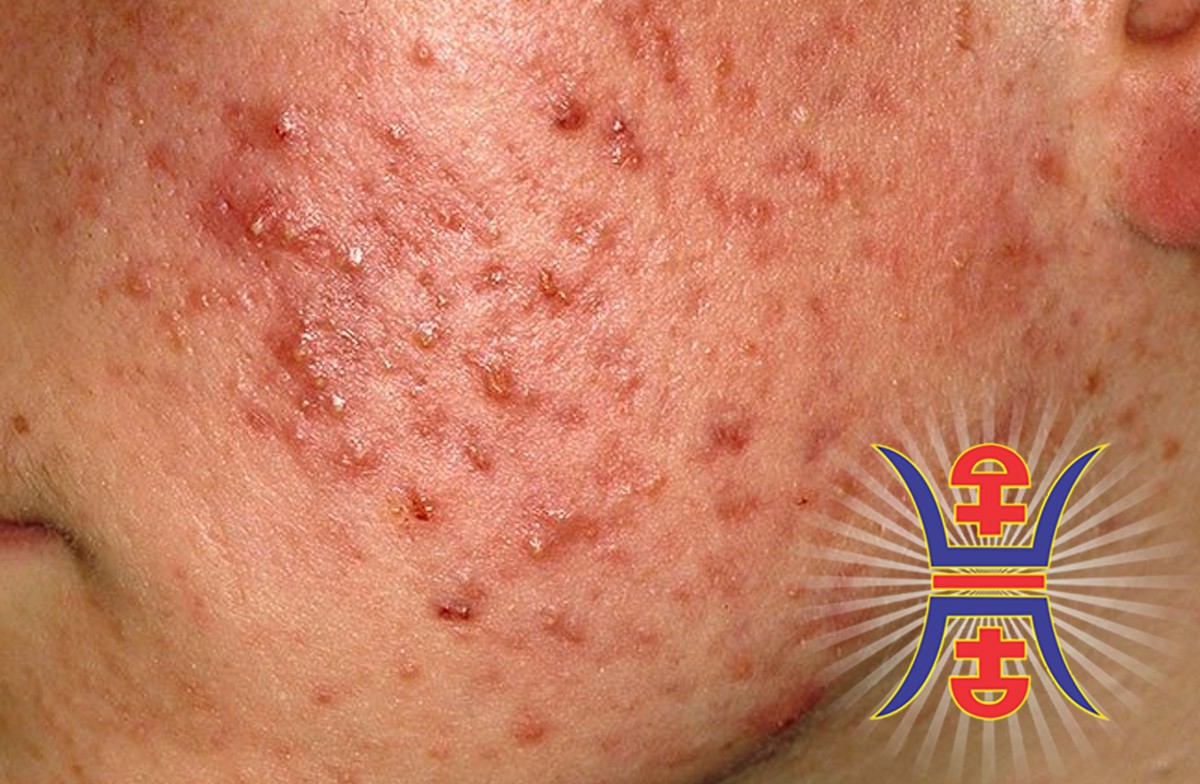Acne
Acne is a common skin condition that occurs when hair follicles become clogged with oil and dead skin cells, leading to the formation of pimples, blackheads, and whiteheads. Acne can occur on various parts of the body, including the face, chest, and back. It is most commonly experienced during adolescence but can also affect adults.
In conventional medicine, the causes of acne can vary, but are often related to hormonal changes, genetics, and certain lifestyle factors, such as diet and stress.
There are a variety of treatments available for acne, and the specific approach will depend on the severity of the acne and individual factors.
Topical creams and gels containing ingredients such as benzoyl peroxide, salicylic acid, and retinoids can be effective for treating mild to moderate acne.
Oral medications, such as antibiotics, hormonal treatments, and isotretinoin (Accutane), may be prescribed for more severe acne.
Additionally, lifestyle changes such as maintaining a consistent skincare routine, avoiding harsh products, and managing stress levels can also help to manage acne symptoms.
In natural health, acne is believed to be caused by a combination of factors, including an imbalance in the body's qi(pronounced "chee"), or vital energy, and heat and dampness in the body. The excess heat and dampness can accumulate in the body, causing inflammation and leading to the development of acne.
Natural health practitioners may use a variety of treatments to address acne, including acupuncture, herbal medicine, dietary therapy, and lifestyle modifications. The specific treatment approach will depend on the individual's symptoms, underlying imbalances, and other factors.
Some common natural health herbs used for acne treatment include:
- Huang Lian (Coptis): This herb is believed to have anti-inflammatory and antibacterial properties, which can help reduce redness and swelling associated with acne.
- Jin Yin Hua (Honeysuckle Flower): This herb is thought to have detoxifying properties and may help to clear heat and dampness from the body, which can contribute to the development of acne.
- Bai Zhi (Angelica Root): This herb is believed to have antimicrobial properties and may help to reduce the appearance of acne by fighting the bacteria that contribute to its development.
In addition to herbal remedies, natural health practitioners may also recommend dietary changes and lifestyle modifications to help manage acne. For example, they may suggest avoiding greasy or spicy foods, getting regular exercise, and managing stress levels.
Foods & drinks should be avoided:
- High glycemic index foods: Foods that are high in sugar or refined carbohydrates, such as white bread, pasta, and sweets, can cause blood sugar levels to spike and trigger acne.
- Dairy products: Some studies suggest that dairy products, particularly skim milk, may be linked to acne. This may be due to the hormones and growth factors present in milk.
- Fried and greasy foods: Fried and greasy foods can increase oil production in the skin and lead to clogged pores, which can contribute to the development of acne.
- Chocolate: While there is no definitive evidence linking chocolate to acne, some people may find that consuming chocolate exacerbates their acne symptoms.
- Alcohol: Alcohol can cause inflammation and dehydration, which can contribute to the development of acne.
Foods & drinks could help:
- Green tea: Green tea is believed to have anti-inflammatory and antioxidant properties that can help to reduce inflammation and improve skin health.
- Turmeric: Turmeric is a spice that is believed to have anti-inflammatory and antibacterial properties, which can help to reduce inflammation and fight acne-causing bacteria.
- Leafy greens: Leafy greens such as spinach, kale, and collard greens are rich in vitamins and minerals that support overall health and may help to improve skin health.
- Water: Drinking plenty of water is important for overall health and can help to keep the skin hydrated, which can reduce the appearance of acne.
- Mung beans: Mung beans are a staple in TCM and are believed to have detoxifying properties that can help to clear heat and dampness from the body, which can contribute to the development of acne.
It's important to note that TCM considers each person's individual constitution and may recommend different foods and drinks based on their unique needs.
In Person With Heshoutang Members
With Heshoutang Online Members
Fill Out the Questionnaire by yourself
When you subscribe to the blog, we will send you an e-mail when there are new updates on the site so you wouldn't miss them.














Comments